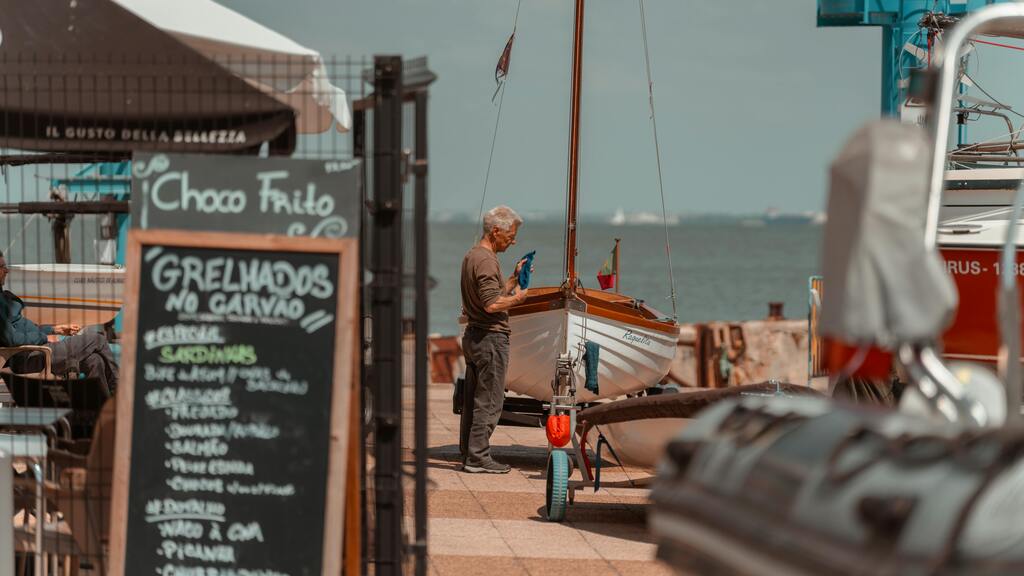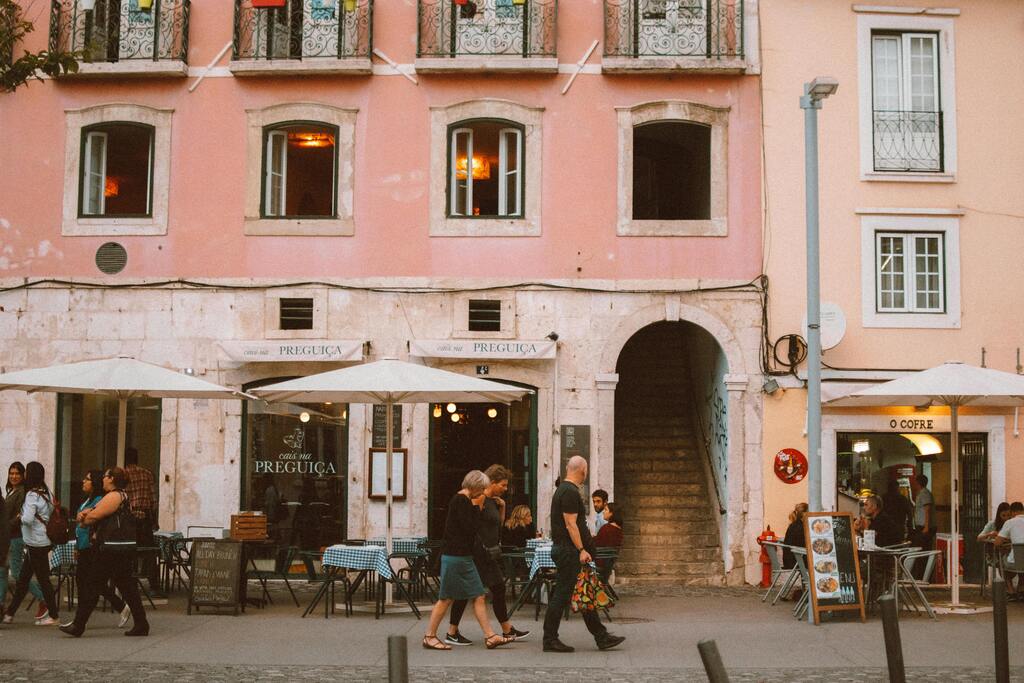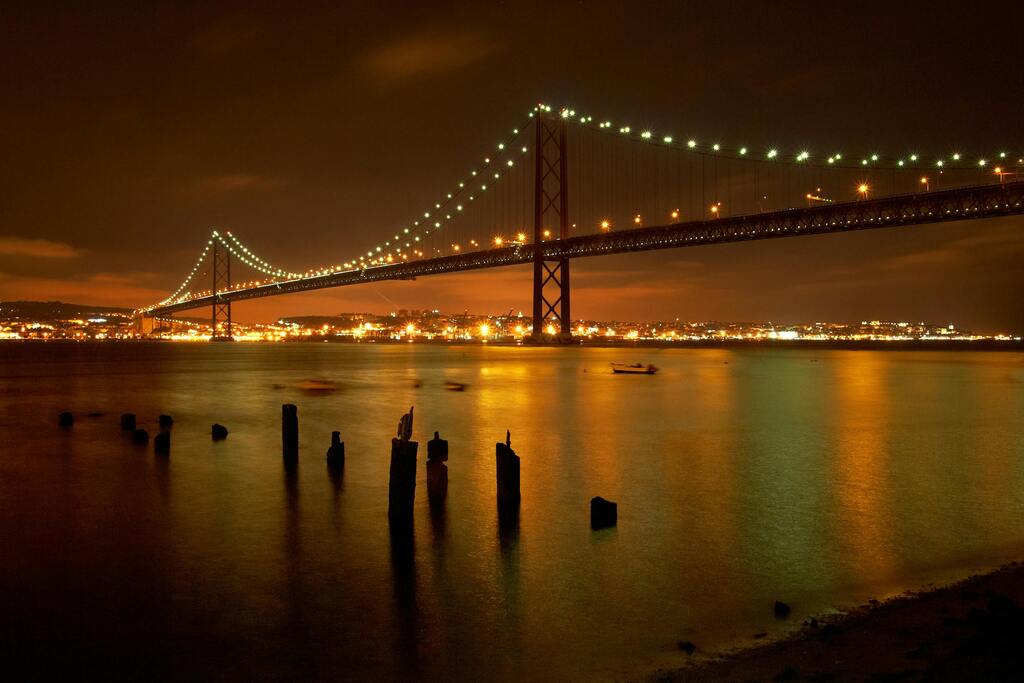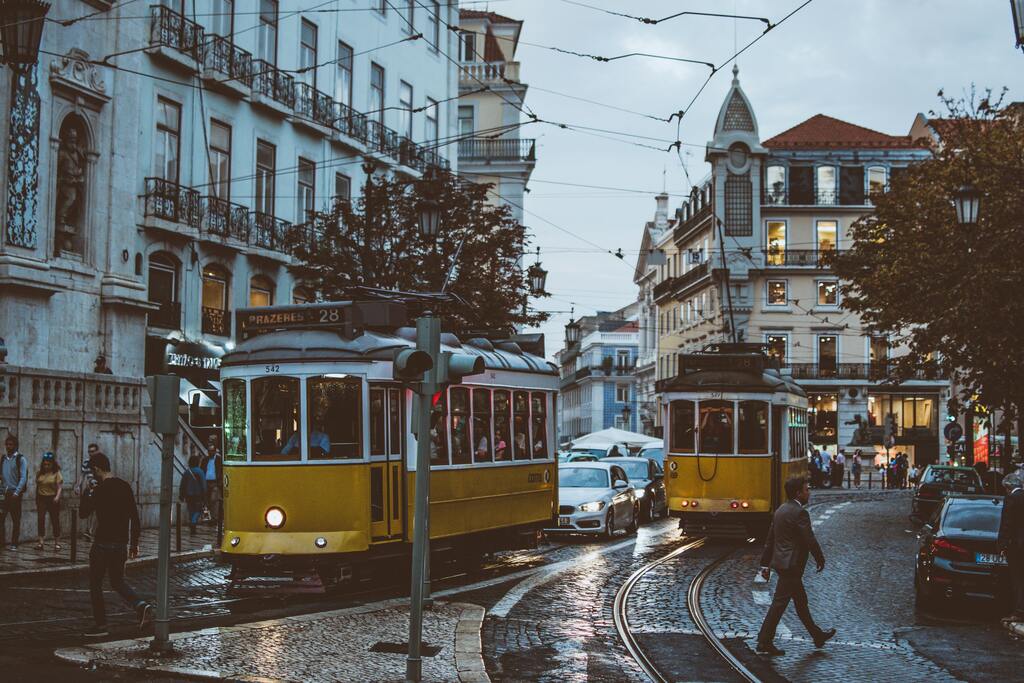Europe: Direct flights Lisbon
London, Amsterdam, Brussels, Rome, Lisbon, Istanbul, Doha, Dubai, Beirut, and Cairo
🇵🇹 Lisbon, Portugal: A Travel & Business Guide for Visitors from Ghana
Lisbon, Portugal’s capital, is a city where heritage meets innovation — a coastal metropolis known for its historic neighborhoods, vibrant culture, tech-driven economy, and deep connections with Africa. For Ghanaian travelers, Lisbon offers a familiar rhythm, shared history, and business-friendly atmosphere, all wrapped in stunning Atlantic scenery.
Whether you're exploring investment opportunities, attending a summit or conference, or simply soaking in the architecture, cuisine, and culture, Lisbon delivers on all fronts.
✈️ Flying from Accra to Lisbon
Direct Flights
TAP Air Portugal offers direct flights between Kotoka International Airport (ACC) and Humberto Delgado Airport (LIS).
Flight Time: Approx. 4.5 to 5.5 hours
Other Options
Connecting flights via:
Royal Air Maroc (via Casablanca)
Turkish Airlines (via Istanbul)
Air France (via Paris)
Qatar Airways (via Doha)
Visa Info
Portugal is part of the Schengen Zone, so Ghanaian passport holders must apply for a Schengen visa prior to travel. Lisbon is an excellent entry point to Europe’s business and cultural networks.

🌍 Why Lisbon Appeals to West African Visitors
Cultural Ties: Portugal has strong historical, linguistic, and trade connections with Lusophone Africa (Angola, Cape Verde, Guinea-Bissau), making it culturally familiar and welcoming to many African travelers.
Business Gateway: Lisbon is emerging as Southern Europe's tech and startup capital, hosting global conferences like Web Summit and attracting investors in fintech, green energy, and digital infrastructure.
Tourism & Lifestyle: Safe, sunny, and scenic — Lisbon offers an excellent quality of life, great food, historic sites, and friendly people.
🏛️ Top Things to Do in Lisbon
1. Historic Landmarks
Belém Tower – A 16th-century fort by the Tagus River and UNESCO site.
Jerónimos Monastery – A masterpiece of Manueline architecture with links to Portugal’s age of exploration.
São Jorge Castle – Overlooking the city from its oldest hilltop, with panoramic views.
2. Cultural Districts
Alfama – The city’s oldest district; wander its winding streets filled with fado music, quaint cafes, and colorful homes.
Bairro Alto & Chiado – Popular for nightlife, boutique shopping, and traditional tascas (taverns).
3. Museums & Art
Calouste Gulbenkian Museum – A world-class art collection spanning from ancient to modern.
Museu Nacional do Azulejo – Dedicated to Portugal’s famous blue tiles.
MAAT (Museum of Art, Architecture & Technology) – Striking riverside venue exploring innovation and design.
4. Waterfront & Views
Tagus Riverfront – A great area for biking, walking, or relaxing at outdoor cafes.
Miradouros (Viewpoints) – Visit spots like Miradouro da Senhora do Monte or Santa Catarina for incredible cityscapes.

🏨 Where to Stay in Lisbon
Luxury
Four Seasons Hotel Ritz Lisbon – A timeless choice for business travelers.
Corpo Santo Hotel – Highly rated boutique hotel near the waterfront and historic sites.
Pestana Palace – A restored 19th-century palace offering historic luxury.
Mid-Range
Hotel Mundial – Centrally located near the Rossio square.
Tivoli Avenida Liberdade – Elegant, with business facilities and a rooftop bar.
Lx Boutique Hotel – Stylish, with views of the river and close to nightlife.
Budget-Friendly
Lisbon Destination Hostel – Located in Rossio Train Station with modern design and social vibe.
My Story Hotel – Affordable boutique chain with several central locations.
The Independente – A well-designed hostel and hotel hybrid near Principe Real.
🍽️ Where to Eat: A Taste of Portugal
Traditional Portuguese
Time Out Market – A culinary hub showcasing Lisbon’s top chefs and local specialties under one roof.
Cervejaria Ramiro – Known for its fresh seafood, especially garlic shrimp and crab.
Zé dos Cornos – A rustic local favorite for grilled meats and rice dishes.
African & Diaspora Cuisine
Cantinho do Aziz – Mozambican flavors and Cape Verdean dishes in Mouraria.
Casa Mocambo – A cozy spot for Cape Verdean and West African fare.
Terreiro – High-end Afro-Portuguese fusion in a stylish atmosphere.
International
Sea Me – Fusion of Japanese and Portuguese seafood.
JNcQUOI – Upscale European dining with luxury interiors.
Café de São Bento – A hidden gem known for its classic steak.

💼 Doing Business in Lisbon
Key Sectors
Tech & Innovation (Lisbon is often dubbed the "Silicon Valley of Europe")
Green Energy & Sustainability
Logistics & Maritime
Tourism & Hospitality
Real Estate & Urban Development
Business Etiquette
Language: Portuguese is the national language, but English is widely spoken, especially in business.
Punctuality is valued, and meetings tend to follow formal structures.
Business attire is professional and modest.
Building personal rapport is appreciated before moving to formal negotiations.
Events & Conferences
Web Summit – One of the world’s biggest tech and startup conferences, held annually in Lisbon.
Lisbon Investment Summit, Greenfest, and sector-specific expos throughout the year.
🛍️ Shopping in Lisbon
Avenida da Liberdade – Lisbon’s luxury shopping boulevard (think Prada, Louis Vuitton).
Armazéns do Chiado – Modern mall in a historical building.
Feira da Ladra – A famous flea market where you can find antiques, crafts, and unique souvenirs.

📅 When to Visit
Best Time: March to June (spring) and September to October (autumn) — mild temperatures and fewer crowds.
Summer (July–August) is lively but can be hot.
Festivals:
Festa de Santo António (June) – Streets filled with music, dancing, and grilled sardines.
Lisbon Carnival – Celebrates with color, samba, and cultural parades.
Africa Festival Lisboa – Honors African heritage and diaspora connections.
🚇 Getting Around Lisbon
Metro & Trams: Efficient and easy to use — the famous yellow tram 28 is both transport and a tourist experience.
Taxis & Rideshares: Bolt, Uber, and FreeNow are widely available.
Lisboa Card: Offers free or discounted access to public transport and many museums.
✅ Conclusion: Lisbon – A Smart Gateway Between Africa and Europe
For Ghanaian travelers and West African professionals, Lisbon offers the perfect combination of cultural familiarity and European advancement. Whether you’re building business bridges, launching a startup, or enjoying a European coastal city that feels warm in every sense — Lisbon provides opportunity, charm, and a strong connection to Africa.
From the vibrant streets of Alfama to the sleek boardrooms of Web Summit, Lisbon is ready to welcome you.